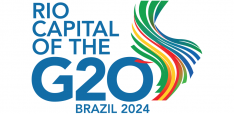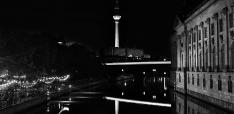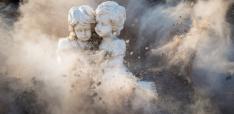A (not so) ‘Happy New Year’ for Iran?
Cornelius Adebahr argues that economic decline rather than the nuclear issue determine life in Tehran on the eve of the Persian year 1392. But a ‘perception gap’ between Iran and the West makes the conflict over the latter apparently insoluble while accelerating the first.
2013 has repeatedly been called a “decisive year” for the international conflict over the Iranian nuclear programme. Not only raising expectations of and pressure on all sides while making an obvious point, this commonplace also very symbolically highlights a source for potential misunderstandings. Because the Iranian year 1391 is just about to end, with 1392 beginning on 21 March – or 1 Farvardin as the date for Nowrouz (New Year) according to the Persian calendar. But rather than bicker about whose year counts as decisive, this observation should serve to illustrate the ‘perception gap’ that seems to separate Iran and the international community.
From a Western point of view, the past year was unparalleled both in terms of action and rhetoric concerning Iran’s worrisome ‘nuclear issue’. Whereas the United Nations’ Security Council has not levied new sanctions since June 2010 (when Resolution 1929 inter alia tightened the existing arms embargo, imposed new travel bans, and froze the funds of the Iranian Revolutionary Guard Corps (IRGC, or Pasdaran)), both the EU and the United States have increased their unilateral measures towards the country.
In the wake of its far-reaching decision of late January 2012, the EU has put in place an oil embargo against Iran, which took effect mid-last year. Furthermore, it restricted any cooperation in foreign trade, financial services (including insurance), and energy technologies. Pursuant to this, in March 2012 the Belgian company SWIFT disconnected all sanctioned Iranian banks from its worldwide system of electronic financial transactions, thus effectively cutting off Iran from all sorts of international money transfers. Likewise, the US has increased its sanctions pressure over the past year to an almost complete economic embargo on Iran. This includes banning the Iranian Central Bank not only from the U.S. financial system, but also threatening anyone who does business with it.
Going far beyond measures targeting the incriminated nuclear programme and related activities, those bilateral sanctions are now plainly directed at the Iranian government as such, aiming to cut off its revenues from the energy sector and to isolate Iran from the international financial system.
Not surprisingly, the effects of sanctions have been felt far beyond those listed persons and companies denominated as their primary targets. The overall economic decline, symbolised in the continuing slide of the Iranian Rial (losing some 40% of its value in only a week in early October 2012, and more than 60% over the past year as a whole), hurts ordinary Iranians at least as much as those in power. The latest official inflation figure is estimated at 27,4 % – the highest ever published – although unofficial estimates reckon the rate to be at least twice as high, with price increases for some basic products ranging up to 100% over the past year. For the past year, the International Monetary Fund forecast the first economic contraction in Iran in nearly 20 years.
Moreover, in the second half of 2012, a debate reached the international press as to whether the sanctions directly affected the country’s supply with pharmaceuticals and medical equipments – even though these do not fall under any of the international sanctions. Iranian claims to this end, likening their plight – in an unusual comparison to their otherwise despised neighbours – to that of Iraqis in the 1990s, gained credibility when U.N. Secretary-General Ban Ki-moon spoke of “significant” sanctions effects on the human rights’ situation in Iran.
What gained much less attention internationally were statements by leading Iranian politicians blaming homegrown mismanagement and corruption for the dire economic situation rather than international sanctions. Parliamentary Speaker Ali Larijani’s statement to this effect – “80% is mismanagement, 20% is sanctions” – can be directly attributed to his quarrel with the Ahmadinejad government. Yet the criticism of former Health Minister Marzieh Vahid Dastjerdi that the Central Bank simply did not allocate enough dollars for drug imports while providing hard currency for luxury cars, was apparently more to the point: She lost her job, being the only women in the cabinet, two weeks later.
This leads to how Iranians perceived their last year, i.e. 1391. Contrary to the Soviet-style claim of the regime calling it the “year of national production”; it was a year of economic troubles and decline. The summer saw an eruption of ‘chicken riots’, when angry shoppers protested in front of shops which had run out of poultry sold at government-subsidised prices. In early October, a crackdown on moneychangers following the Rial hike sparked short-lived protests near Tehran’s traditional Bazaar. Throughout the winter, the capital made international headlines with a number of ‘smog-free days’, i.e. the closure of schools, universities, and government agencies as a means to battle the increasing pollution. Now, Iranians worry about price increases of pistachios, their favourite Nowrouz snack. These are again mostly unaffected by the sanctions but rather by the pistachio industry’s strategic decision to export the nuts for the sake of gaining hard currency rather than sell them at the domestic market.
So where does this leave the ‘perception gap’? Well, while Western powers might argue whether 2013 was a good year or a bad one with regard to the nuclear issue – after all, sanctions are now ‘working’ and the international coalition against Iran is still broadly intact; but then again, the conflict is still not solved and, instead, the regime keeps increasing its nuclear stockpiles – 1391 was certainly not a good year for Iran or Iranians. An economy in shambles, a middle class further weakened by job cuts and price rises, and no relief in sight.
After a two-weeks Nowrouz recess (certainly less joyous than in previous years), the country will wake up to another boldly named year, which will first of all bring them Presidential Elections in mid-June. The regime – or rather the powers that control everything in this country, including the government – will make sure that ‘the right man’ will win. After two misses with the reformist Khatami elected in 1997 and the populist Ahmadinejad successful in 2005, this means a died-in-the-wool conservative from the inner circle of the Supreme Leader that relies on good connections with the Pasdaran – or the other way around, depending on whether Khamenei or the Guards are actually in charge.
The international community would do well to understand that by focusing merely on Iran and its nuclear programme, the conflict is unlikely to be solved. Indeed, both sides regularly acknowledge that there is not trust between them, which is why any attempt to come to a solution within the “bomb-or-not” frame has failed so far. Instead of asking the regime to surrender, both nationally and internationally, the global powers should broaden the problem to include other issues. Bilateral negotiations between the U.S. and Iran to overcome their mutual impasse is one way, while trying to establish a nuclear weapons free zone in the Middle East is another. Acknowledging that Iran has a role to play in the Syrian endgame would be similarly helpful, as would it be to focus on human rights abuses not only in Iran but in all countries of the Middle East, including the West’s allies.
None of this should take away from Iran’s obligations deriving from the Non-proliferation Treaty as well as the relevant UN Security Council resolutions. The aim remains unchanged: There must not be an Iranian bomb. Yet taken together, such a broadening of the picture should ultimately help Tehran to agree to an eventual compromise that contains more than just ending the punitive measures imposed as a response to the country’s intransigence. Both Libya and North Korea were offered better deals to back down, even though neither currently offers a good example for Iran.
If the international community continues to fail to see the conflict also through Iran’s eyes – if only when looking at the calendar – it will remain bound in a power play that it is unlikely to win. A new year should thus be an opportunity for a broader approach to succeed.


